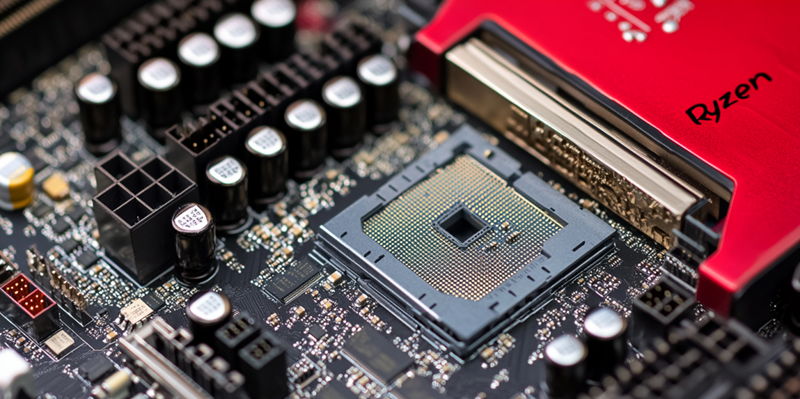AMD’s forthcoming Ryzen 7 9800X3D processor is generating considerable buzz and speculation, especially in light of the freshly leaked benchmark tests. The scores indicate that this new processor might significantly outperform its predecessor, the Ryzen 7 7800X3D, particularly in gaming and content creation tasks. According to these benchmarks, the Blender performance score for the 9800X3D registers at an average of 324.94, which is a notable 26% increase over the 7800X3D’s score of 256.39. This suggests a meaningful leap in performance that can be attributed to the rumored "Next-Gen 3D V-Cache" technology and widespread speculation that the CPU’s multiplier will be unlocked to facilitate manual overclocking.
The rise in performance comes with a plethora of other speculated enhancements. Although the official specifications for the 9800X3D haven’t been confirmed by AMD, leaks suggest that it will boast higher base and maximum clock speeds when compared to its predecessor. This improvement is critical for gamers and professionals alike, who require top-tier performance for demanding applications. With a scheduled release date of November 7 and an embargo lifting a day earlier, early reviews are expected to provide further insights shortly. The anticipated improvements are not confined to just gaming; productivity and content creation tasks are also likely to see a substantial boost, setting high expectations for the performance of this new chip.
Potential Impact on the Market
As the release of Nvidia’s RTX 5000 series nears, the technological environment is poised for an all-around upgrade, particularly for users already employing higher-end GPUs. The introduction of the Ryzen 7 9800X3D could prove compelling for both gamers and overclockers. Even though its official price remains unannounced, the talk surrounding its significant advancements raises its prospects considerably. The timing of its release—shortly before Black Friday—might influence many purchasing decisions, further strengthening AMD’s standing in the ultra-competitive high-performance CPU market. Gamers who have been eagerly awaiting an upgrade have much to look forward to, as the new Ryzen CPU promises to enhance the overall gaming experience with better frame rates and higher stability.
The blend of higher clock speeds and unlocked multipliers for manual overclocking makes the Ryzen 7 9800X3D a particularly attractive option for those looking to push their systems to the max. This combination of features not only presents an irresistible opportunity for power users but also signals AMD’s continued commitment to innovation and performance. The significant performance uplift demonstrated by early benchmarks underscores AMD’s dedication to advancing CPU technology, keeping pace with the escalating demands of modern software and gaming engines.
Setting New Benchmarks for Performance
The upcoming AMD Ryzen 7 9800X3D processor is stirring significant excitement, thanks in part to newly leaked benchmark tests. These results suggest the new processor could greatly outperform its predecessor, the Ryzen 7 7800X3D, particularly in gaming and content creation. The benchmarks highlight the Blender performance score for the 9800X3D at an average of 324.94, marking a substantial 26% improvement over the 7800X3D’s 256.39 score. This impressive gain is believed to be due to the rumored "Next-Gen 3D V-Cache" technology and the widespread assumption that the CPU’s multiplier will be unlocked, allowing for manual overclocking.
In addition to the performance boost, other speculated enhancements are generating interest. Although AMD has not officially confirmed the 9800X3D’s specs, leaks suggest higher base and maximum clock speeds than its predecessor. This is particularly important for gamers and professionals who need high performance for demanding tasks. With a release date set for November 7 and the embargo lifting the day before, early reviews are expected to shed more light soon. These enhancements are not limited to gaming; productivity and content creation could see major improvements, setting high expectations for this new processor.

